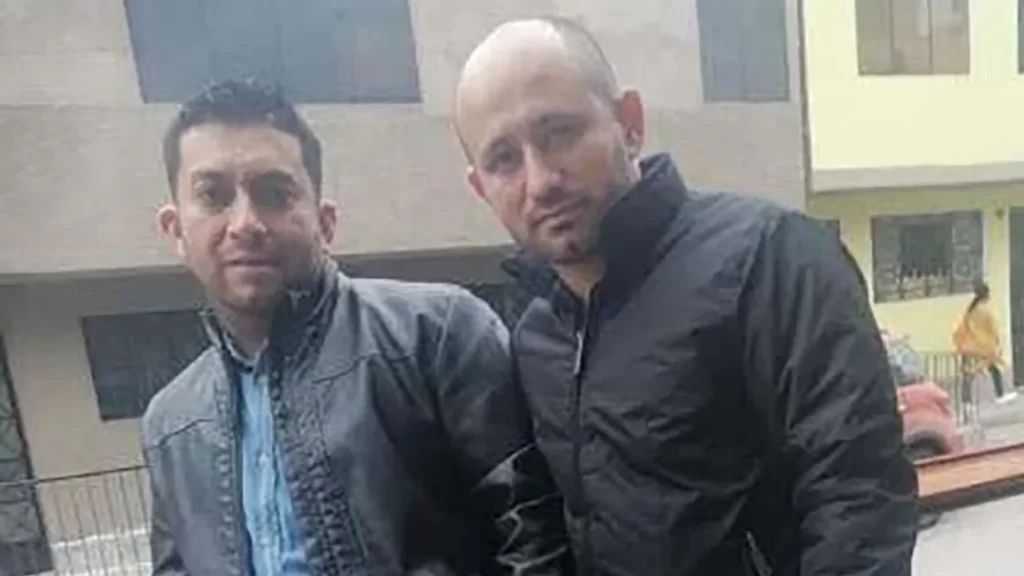A Venezuelan man who traveled to the United States to donate a kidney to his brother learned this week he was facing deportation, prompting desperate pleas for his release from immigration custody on humanitarian grounds. However, days later, an advocate announced that Jose Gregorio Gonzalez received a temporary reprieve from deportation.
While the reprieve is temporary, it allows Gonzalez to continue assisting his brother, Jose Alfredo Pacheco, by driving him to dialysis and potentially becoming a kidney donor.
Pacheco immigrated to the United States from Venezuela in 2022 seeking asylum, according to Tovia Siegel, director of organizing and leadership for immigrant justice at the Resurrection Project. His asylum case, filed in 2023, is still pending.
He began experiencing abdominal pain after arriving in the Chicago area that year. Pacheco, 37, sought treatment at a local hospital and was diagnosed with end-stage renal disease, or kidney failure.
Gonzalez, 43, learned of his brother’s diagnosis and came to the United States at the end of 2023. He presented himself at the border on two occasions: On his first attempt, he did not pass a credible fear interview and was denied entry. On his second try, he used an app created by Customs and Border Protection that, during the Biden administration, allowed asylum seekers to schedule interviews at the border.
“Because he had a prior removal order, at that point, he was detained,” Siegel told CNN.
He was released several months later on an order of supervision because Venezuela was not accepting deportation flights at the time, Siegel said. The order required him to make regular check-ins with immigration authorities and to wear an ankle monitor, but it enabled him to live with and care for his brother over the past year.
“Through that time, they were undergoing the necessary tests to determine that Jose could donate his kidney to Alfredo,” Siegel said.
They were preparing for the possibility of an operation when ICE agents arrived on March 3 at the Cicero, Illinois, home where the brothers lived. They took Gonzalez into custody.
On Monday, a judge denied Gonzalez’s stay of removal, leading his brother and immigration advocates at the Chicago-based Resurrection Project to fear his imminent deportation.
However, on Wednesday, his attorney received word that ICE would grant Gonzalez humanitarian parole, allowing him to temporarily stay in the United States to continue caring for Pacheco – and possibly make the life-saving organ donation.
His release is expected to happen this Friday, Siegel said. ICE has not yet specified the terms of his release.
CNN has reached out to ICE for comment on Gonzalez’s detainment and anticipated release.
At a vigil on Monday night calling for Gonzalez’s release, before ICE granted the humanitarian parole, Pacheco told the crowd he requires a four-hour dialysis three times a week to survive without a transplant.
“It’s extremely difficult – sometimes, I can barely get out of bed,” he said in Spanish. “My brother is a good man. … He came only with the hope of donating his kidney to me.”
Since the beginning of March when Gonzalez was detained, Pacheco has been shouldering the burden of his diagnosis alone.
“He’s tired, he’s nauseous, and because he has not had his brother here, he’s had to drive himself to and from appointments,” Siegel said. “So aside from the incredible emotional pain of the family separation and detention, there have also been really significant practical struggles for Alfredo.”
As of April 1, more than 90,000 people in the United States are on the kidney transplant waiting list, according to the Organ Procurement and Transplantation Network. Through February of this year, the most recent data available, fewer than 4,500 people had received a transplant. And just 1,000 of those donations came from living donors.
When Gonzalez is released, the brothers plan to resume the process of determining whether they are compatible for the transplant. If they are not, they will participate in a program called a “paired kidney exchange,” which connects one or more pairs of compatible donors and recipients.
“What’s pretty amazing about it is it actually means that by donating his kidney, Jose Gregorio would actually save two people’s lives,” Siegel said, “because there would be two people in need of transplants who would receive them.”



